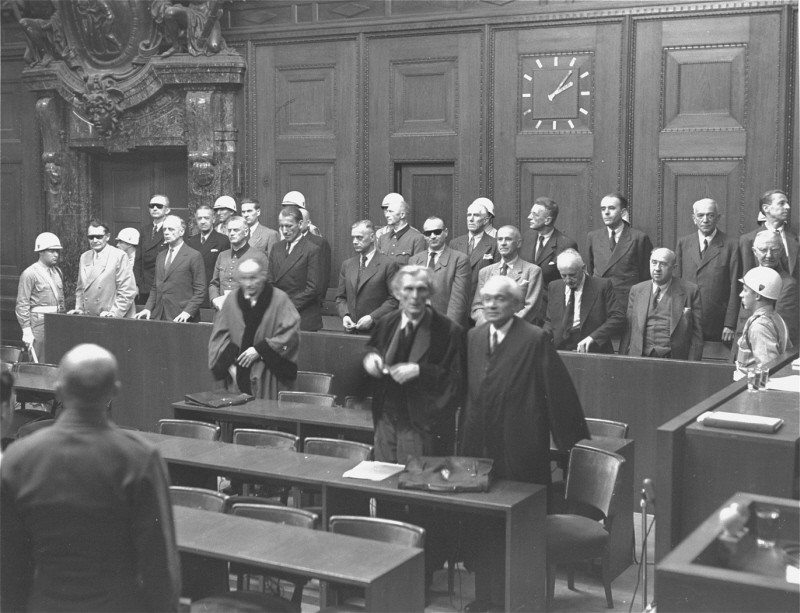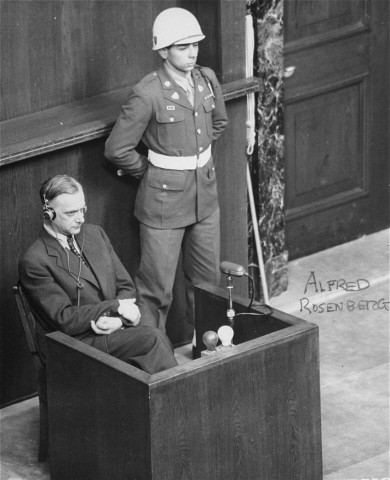
Alfred Rosenberg
In the immediate aftermath of the Holocaust, the world was faced with a challenge—how to hold individually accountable those German leaders who were responsible for the commission of monstrous crimes against humanity and international peace. The International Military Tribunal (IMT) held in Nuremberg, Germany, attempted to face this immense challenge. On October 18, 1945, the chief prosecutors of the IMT brought charges against 24 leading German officials, among them Alfred Rosenberg.

Alfred Rosenberg (1893–1946) was a major Nazi ideologue. He was author of The Myth of the Twentieth Century (1930), which outlined Nazi racial theories.
Rosenberg was the head of the Nazi Party's foreign affairs department (1933). In 1940, he established an organization (Einsatzstab Rosenberg) whose mission was to loot and confiscate cultural treasures from all over Europe and bring them to Germany.
As Reich Minister for the Occupied Eastern Territories (1941), Rosenberg had some responsibility for German policy in occupied areas of the Soviet Union, including the annihilation of Soviet Jews and the deportation of millions of Soviet civilians for forced labor in Germany.
Tried as a major Nazi war criminal before the International Military Tribunal (IMT) at Nuremberg in 1945, Rosenberg was found guilty on all four counts (conspiracy, crimes against peace, war crimes, and crimes against humanity) and sentenced to death. He was hanged on October 16, 1946.
Critical Thinking Questions
- How did Rosenberg defend his actions and choices at the IMT?
- How do leaders of governments and organizations accused of mass atrocities rationalize their choices?

